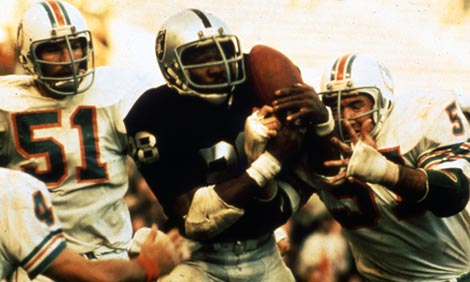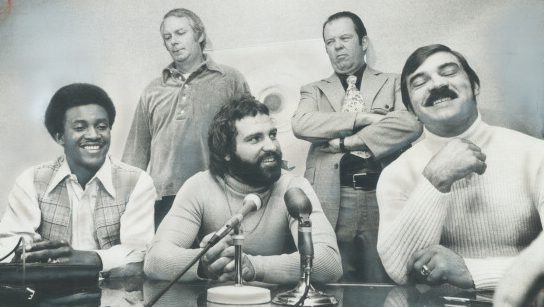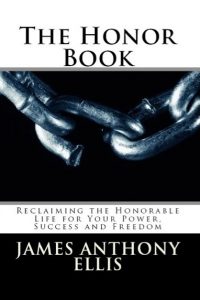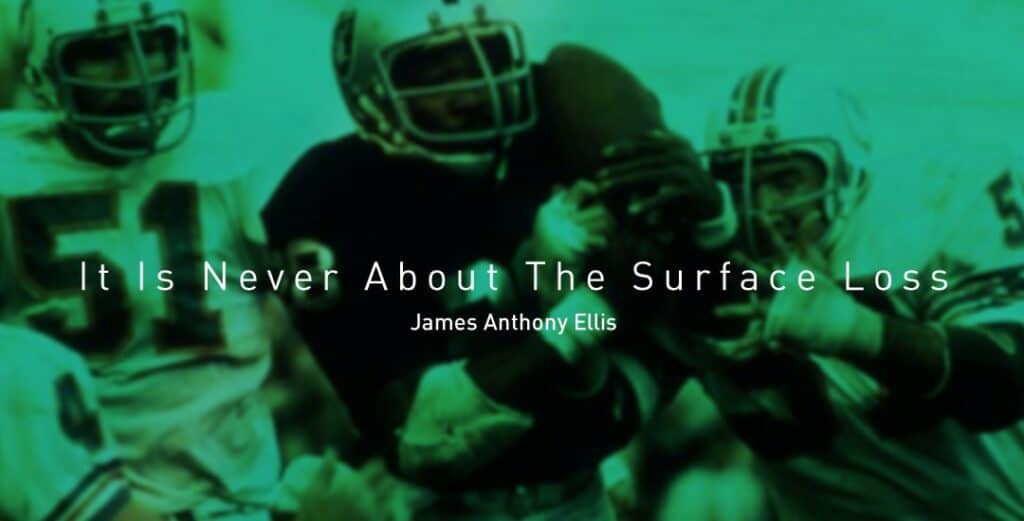James Anthony Ellis
Legacy Magazine Editor

It all started with a pass play that never should have resulted in a catch and then a loss for the Miami Dolphins. It was December 21, 1974, the first round of the playoffs. The agony and the pain appears to have started right there, at that stupid shot put of a pass that tumbled in slow motion towards the end zone with less than 30 seconds to go. In a sea of Miami hands (at least six) trying to break up the pass, it was the Raiders’ Clarence Davis, the worst receiver on the team, who brought it down.
It appeared to all spring forth from that one play and that one loss. But did it?
How does the old saying go?
“You sure you want to pull on that thread?”
Is that it?
It’s a good saying, perfect for those who don’t want to go deeper and discover what lies beneath the surface, for those afraid of revealing too much, for those who dare not tread towards the cascading layers of anything: relationship squabbles, miscommunication topics, touchy subjects, the agony of defeat, or even certain types of shirts I guess.
And it’s a perfect saying to reflect the multilayered, vulnerable nature of emotions.
The layers of our emotions, one on top of the other, are met one by one. It may be easier for men to experience the emotion of anger, which we may be met during the loss of a game, the loss of a job, the perceived loss of respect or even the loss of a mate. In circles like a men’s team, or a sacred healing group, if we are ever given enough space concerning our current situation and upset, we have the invitation to go deeper in order to experience the next indicated layer (ie. sadness, guilt, fear).
For everyone, it will be a different order and a different thread to pull.
For each of us though, we experience just one layer at a time, and healing is encountered as we peel those layers – like an onion, right? We can peel back the layers, one after the other, until we get to the core of the issue! What would that ever be? What has been the core for you?
Throughout all of my experiences in the healing field, I have routinely observed that the surface layer of agitation covers frustration, which covers anger, which covers sadness, which covers fear, which covers guilt, which covers terror, which covers the deep grief found in an empty void. This void is the home of transformation, and ultimately a divine, miraculous well-spring of love, calm, bliss and peace.
Whew.
So I would imagine if you don’t quit on the process of pulling on that thread or digging in the dirt (how many analogies can I fit into this article?), then we can end up in a miraculous place. It’s the promise of perseverance and faith.
I have also found that even surface upset can represent an upset we aren’t even aware of. Surface tears can be a signpost for a deeper sadness we don’t comprehend consciously. For those who can admit to crying, have you ever asked yourself, “Why am I crying over that?”
Why that song? That phrase? That experience?
There is a line in the John Mellencamp song called “Check It Out.”
All utility bills have been paid. Can’t tell your best buddy that you love him.
Yeah, I would tear up over that line. It struck a chord obviously. Do I know of a certain “buddy” whom I haven’t let know of my care? Nothing comes to mind … the conscious mind anyway.
I think they call it “transference” in psychology circles. These are the moments when we are grieving over one surface event or circumstance, but it actually ties into something we don’t want to directly confront. I recall that one movie scene in “The Courtship of Eddie’s Father” when the motherless child Eddie was FREAKING OUT over the death of one of his goldfish. The maid came in and said, “You were thinking of your mother, weren’t you?” Although that was obvious to everyone watching on, Eddie’s father barked out later: “A fish is a fish and his mother is his mother!” Yeah, well tell that to Freud.
Sometimes a fish is not a fish.
I also remember when my older sister Mary Lynn was moving out of town. She did it twice. Once when she was 19 to San Diego, and another time 20 years later when she moved to New York. It was during those two “farewells” that I saw my father tear up. Not before, not ever again. Not over my leaving or anyone else’s departure. But the eldest daughter? Yes. He even said, “Oh look at me, crying like a school kid.” Though it’s always sad to say goodbye to a loved one, there appeared to be something more going on there – perhaps on a deeper, symbolic level beyond conscious awareness. (Nothing personal Mary Lynn.)
So just like there is a layering of various emotions, there is indeed an invisible layering of grief, of which we may not fully comprehend. Have you ever had an upset, even grief, that went far below a surface you did not understand?
Do you have an experience you can point to?
I sure do.
It was December 21, 1974, a playoff game. Yes, I am going THERE!
I still don’t understand how Miami’s linebacker Mike Kolen didn’t reach that football before Clarence Davis. Kolen’s hands were two of the six hands trying to knock the ball down. The other four hands belonged to safety Charlie Babb (49) and linebacker Mike Ball (51). Wimps.

It was the only time while watching a sporting event that I have cried. I remember going into the bathroom and sobbing after that game. Oh sure, I teared up another time during a touching video tribute to Bobby Orr. But jeez, they underscored the tribute with the tearjerker “The Way We Were,” and I was just young enough to have missed Orr’s glory years. So easily the tears came. However, over all my life, no other loss of a game struck such a deep place within me than the 1974 playoff game against the Oakland Raiders. But why?
I have heard that this is also the only game over which Dolphins coach Don Shula visibly cried in disappointment. Hmm, makes you wonder what that could be about.
Now, the Dolphins have lost a ton of games, many more in the last 10 years than we fans would like to admit. And yes, there have been the heart-breakers for the team and for Shula. The loss in Super Bowl VI in 1972 against the Dallas Cowboys. The 1982 playoff overtime game against the San Diego Chargers when Kellen Winslow led his team to victory in one of the most exciting games ever. A Monday Night game in 2000 when the New York Jets came back from 23 points in the 4th quarter to win. And, according to Shula, the most devastating loss he ever experienced came in the 1969 Super Bowl III when his NFL Baltimore Colts lost to the AFL Jets in one of the sport’s biggest upsets.
But over all these losses, even heart-breakers, Shula never cried.
Except for the one game in late 1974.
And I have a theory.
It’s a theory never brought to light in Dolphins circles. I’ve never heard it. It’s actually a topic you rarely if ever see broached. To put things into context and perspective, history must reveal that this playoff game would be the last game played by the trio of Dolphins legends Larry Csonka, Jim Kiick and Paul Warfield. The entire season was played with this silent and dark cloud hovering over the games, as it was a known fact that these three would be jumping to the upstart World Football League the next year. The final game of the 1974 season would be their last.

Negotiations with Dolphins owner Joe Robbie and the front office did not net positive results, and the three stars – a backbone of a team built strong because of “teamwork” – opted for the big money promised by the new league gamers. Whether Robbie’s cheapness or the players’ greed were factors or not, the bottom line was the same for players, fans and coaches alike: the TEAM WAS OVER.
This was the same team that shifted from 3-10-1 in 1969 to be a playoff contender at 10-4 under Shula in his first season in 1970. The same team that made it to three subsequent Super Bowls, including the only undefeated season of 1972. The same team that showed what a bunch of “no-names” could do when they played as one unit, and stuck together, through thick and thin.
Throughout that 1974 campaign, even though the team only lost three games in the regular season, I could feel something slipping away. It was underneath it all. A life-force had been compromised, a lifeline had been severed. In that game against the Raiders, you could just tell that the “team” would not be victorious. The Dolphins scored on the initial kick-off and played really well. But the Raiders kept making these amazing touchdown scores. As in the symbolic injury of star safety Jake Scott hobbling off the field, the Dolphins were limping their way towards the inevitable. They just didn’t have it any longer; the players were there, but the team was gone.
Even though running back Benny Malone galloped into the end zone to put the Dolphins ahead 26 – 21 with two minutes left, it didn’t matter. The broken heart was already there. It was only a matter of time.
You wanted to hang on and not know what was coming. You wanted to hang onto the glory years. You wanted to hold tight to a unified team that could create its own magic, and go undefeated. But in your gut you knew it was already over. All it took was an impossible-to-stop drive by Raider quarterback Kenny Stabler, who picked the defense apart. All it took was 1:34 seconds. All it took was a gutted and heartbroken team that had already lost the one thing most important in the gridiron battle … more important than money.
All it took was a fluttering pass that took hours and hours in the air, heading towards the end zone with less than 30 seconds left.
And with it, the death was just about complete. One more insult remained. After Davis scored the winning touchdown, a Raider fan ran onto the field and punched linebacker Nick Buoniconti in the stomach. An actual fistfight ensued with some Miami players and that fan.
- But who were the Dolphins truly fighting at that moment?
- What were they really angry about?
- What would break their hearts here, more so than a heartbreaking loss?
- What would bring tears to the eyes of a chisel-chin coach and a young kid in Huntington Beach?
Maybe not clear to those watching in the stands or on TV, or perhaps not even clear to the players themselves, I believe the loss went deeper than 28-26.
It was the loss of a team. The loss of team spirit. The loss of teamwork. The loss of something invisible and larger than any game could ever capture.
The loss of the “men.” Yes, I am going THERE!
We, as men, can’t routinely admit to it. We pretend it doesn’t matter. When men are lost – and leave our circles, our men’s teams, our families, or die in battles as fallen soldiers – the wound goes deep. Maybe too deep to feel at times.
But it matters. It does matter.
Below it all. Below the bravado. Below the lost football games and seasons, there beats a heart. It beats not alone, but in rhythm and harmony with others with whom we align – as family and as teammates.
You pull on that thread – no matter where you start – and you will find every single layer – upset, anger, fear, sadness, grief, triumph, victory …
… and a love at the core of it all.

James Anthony Ellis is an award-winning playwright, journalist and filmmaker, who is the author of eight books, including the men-focused “The Honor Book” available HERE.

